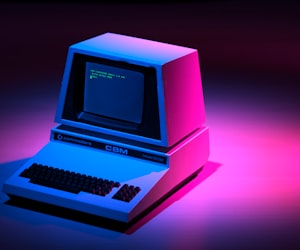I’m in the market for a new smartphone and I want a really good camera. A lot of new phones are touting 20 or 40 megapixel resolutions, but having more megapixels isn’t necessarily better, right?
- Jim
This question was answered on September 6, 2013. Much of the information contained herein may have changed since posting.

Digital camera specs can be some of the most complex to evaluate for the non-techie buyer and the industry long ago chose to focus on the megapixel rating to simplify marketing messages.
You are absolutely correct in that just having a higher megapixel spec does not make a camera better.
There are two primary benefits to a higher megapixel count: large format printing and cropping images, which are two things that most smartphone owners rarely spend any time with.
If all you really do is upload pictures to Facebook or another photo sharing site and view them via a computer monitor or mobile device, the megapixel count of just about any smartphone is more than you need.
Images that are uploaded to the Internet generally get compressed, which means pixels are removed to save space and decrease load times. If you primarily view the images on your computer, unless you have a super high resolution computer monitor, a 5-megapixel image would be more than sufficient to provide you with a brilliant full screen image.
If you plan on printing high resolution images, a 5-megapixel image is also more than sufficient for very crisp 8x10 prints.
Where the additional pixels can come in handy is when you are photographing something far away. Most smartphone cameras that offer any type of zoom incorporate digital zoom, which is nothing more than an unsophisticated cropping tool.
You’re better off not using any type of digital zoom with a higher megapixel camera so you can crop it tighter with a decent image editing program afterwards. In this case, the more megapixels the original image has, the tighter you can crop without major visual impact when you resize the image.
Features that are much more important to the overall quality of a smartphone camera are things like the size of the image sensor and lens, the quality of the optics and the software on the phone that allows you to make adjustments (such as ISO) while you are taking the picture.
If image quality is really important to you, I’d suggest that you ignore the megapixel rating and focus on the size of the image sensor first and if it has a large megapixel rating, all the better.
An inexpensive 8-megapixel point-and-shoot camera will generally blow away a 12-megapixel smartphone camera, especially in low light situations, because the image sensor is substantially larger in a regular camera
The ability to detect and capture light is the single most important function of any digital camera and smartphones just don’t have the space for large image sensors and lenses, which is why images shot in low lighting with a smartphone are generally grainy.
There are some smartphone manufacturers that are starting to use larger image sensors and lenses on their smartphones, but you often lose the sleek form factor that you may want.
There are actually a couple of reasons why more megapixels could be a bad thing: image quality and storage.
In order to satisfy the marketing departments demand for a higher megapixel rating in a thin phone, the engineers have to use smaller individual pixels which impacts image quality because they are less sensitive to light.
Higher megapixel ratings also make each image larger, meaning that all of your storage devices (phone, computer, online accounts, etc.) will fill up faster for something your eye generally can’t actually see.
About the author
 Ken Colburn of Data Doctors on September 6, 2013
Ken Colburn of Data Doctors on September 6, 2013
Need Help with this Issue?
We help people with technology! It's what we do.
Contact or Schedule an Appointment with a location for help!

